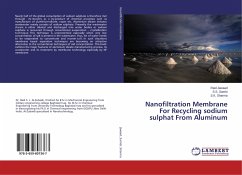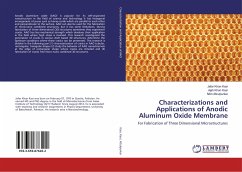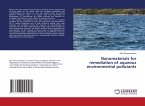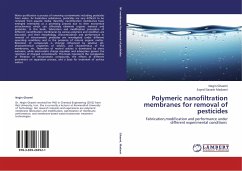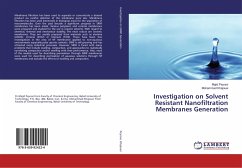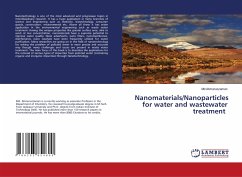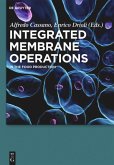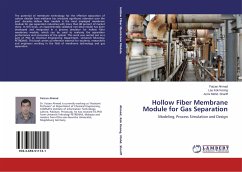Nearly half of the global consumption of sodium sulphate is therefore met through its recovery as a by-product of chemical processes such as manufacture of aluminium-silicate, rayon etc. Aluminium silicate industry wastewater mainly consists of sodium sulphate. Presently the wastewater stream is either diluted and discharged into water bodies or sodium sulphate is recovered through conventional evaporation - crystallization technique. This technique is uneconomical especially when very low concentration of salt is present in the wastewater, thus, lot of water needs to be evaporated to concentrate and recover salt. In such situations membrane based separation techniques are becoming an attractive alternative to the conventional techniques of salt concentration. This book outlines the major features of aluminium silicate manufacturing process, its wastewater and its treatment by membrane technology especially by NF membrane.
Bitte wählen Sie Ihr Anliegen aus.
Rechnungen
Retourenschein anfordern
Bestellstatus
Storno

